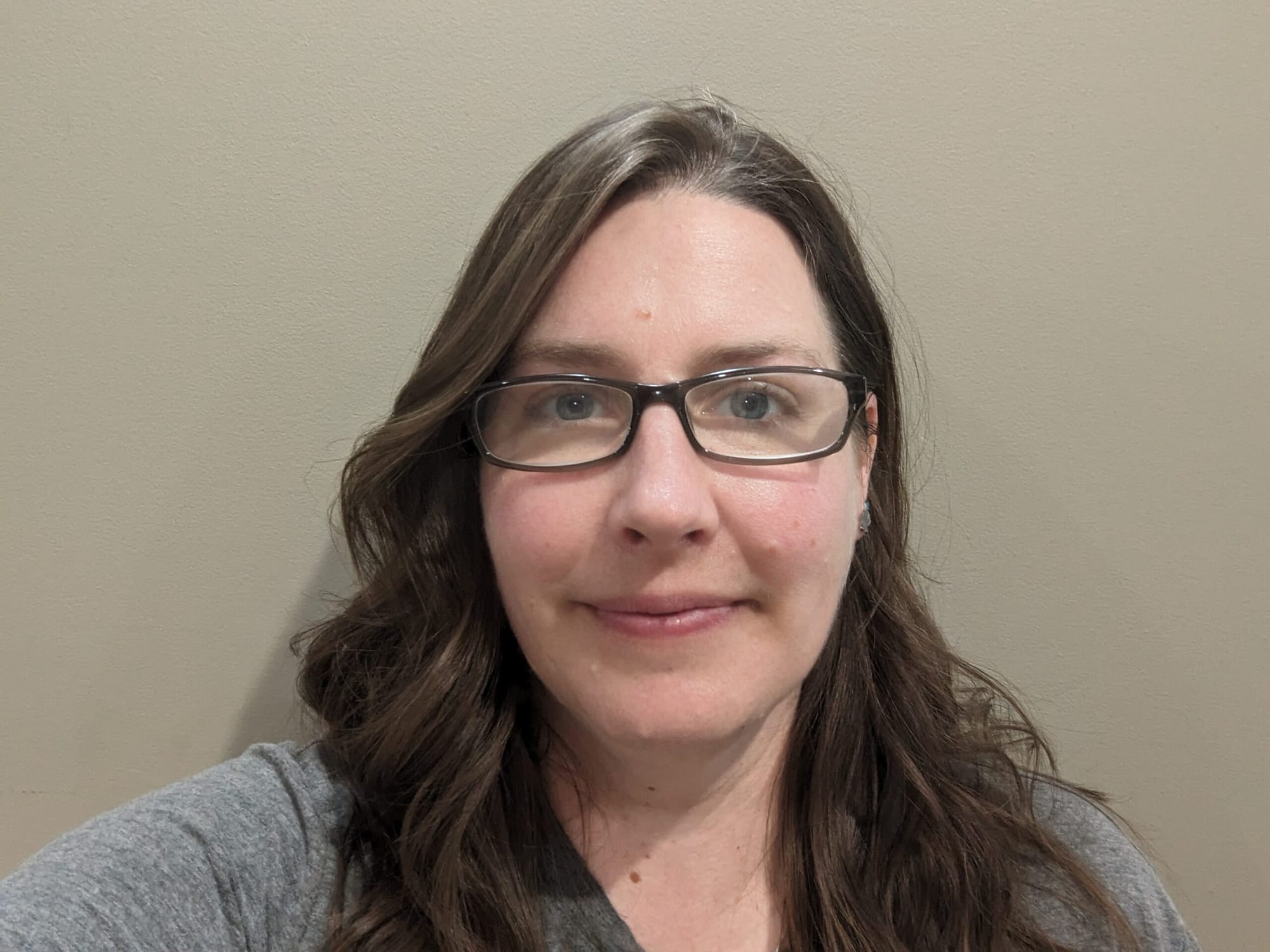Judge: Ottawa Clerk doesn't have to produce closed session minutes as part of lawsuit — yet
A lawsuit disputing a pair of controversial employee severance agreements approved by the Ottawa County Board of Commissioners late last year will continue, without the plaintiff or his attorney having access to closed session minutes that are key to the case.
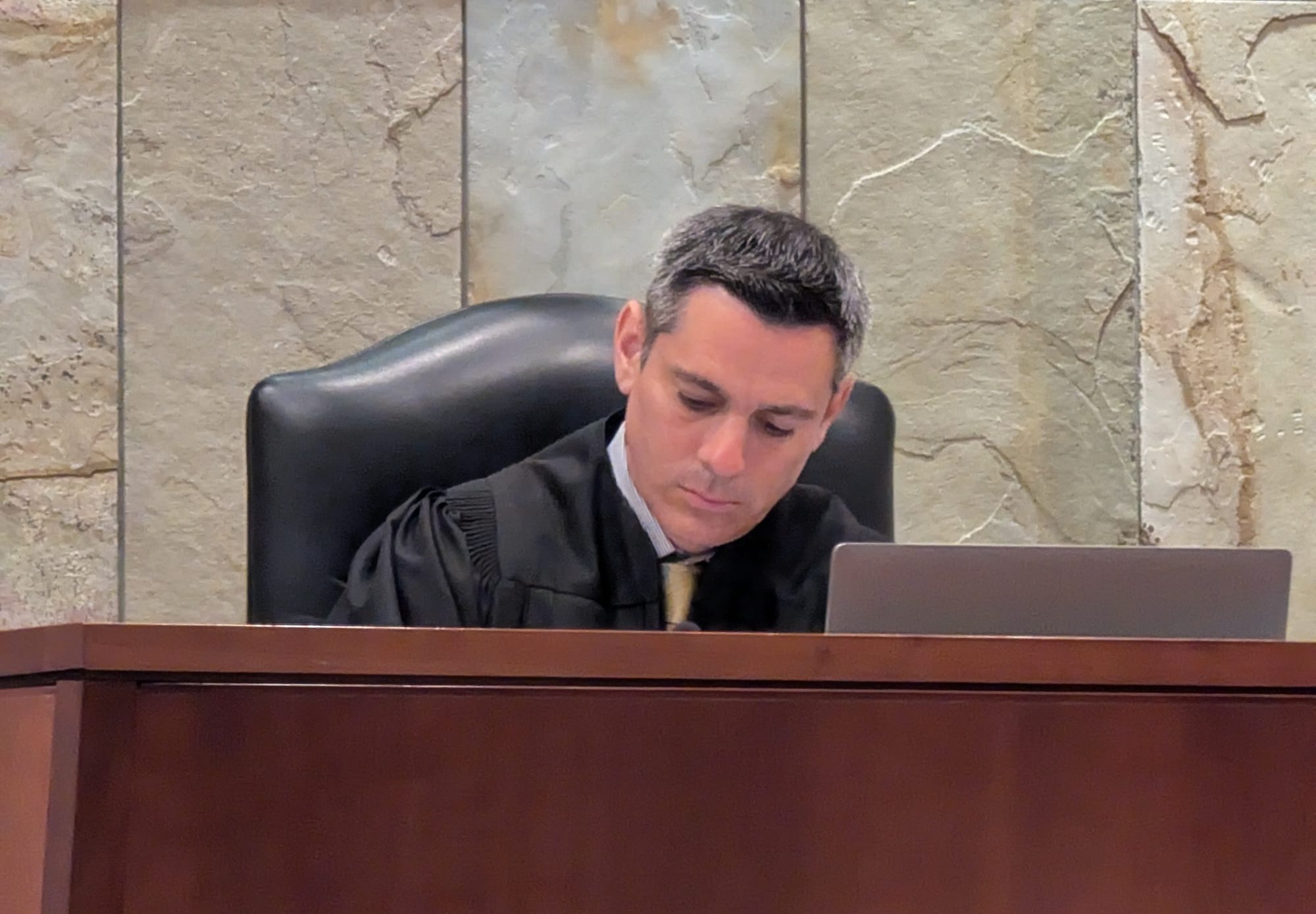
GRAND RAPIDS — A lawsuit disputing a pair of controversial employee severance agreements approved by the Ottawa County Board of Commissioners late last year will continue, without the plaintiff or his attorney having access to closed session minutes that are key to the case.
At issue are 11th-hour severance agreements with former interim county administrator Ben Wetmore for $175,000 and his executive aide, Jordan Epperson, for $100,000 plus five months of benefits.
Read More: Severance agreements for Ottawa interim administrator, aide to exceed $280,000
On June 13, Kent County’s 17th Circuit Court Judge Scott A. Noto granted the county's motion to prevent Ottawa County Clerk Justin Roebuck from turning over minutes of two closed sessions late last year, where commissioners discussed the severance agreements and subsequently approved them in open session in respective split votes.
Noto said he was ruling based on other courts' interpretations of Michigan's OMA statute.
"What we're talking about here is statutory interpretation," he said.
How we got here
Plaintiff Dan Zimmer, of Port Sheldon Township, filed the lawsuit Dec. 16, claiming three decisions the board made at its Dec. 10 meeting were legally unenforceable: a contract for remediation of Crockery Lake in Chester Township and a pair of severance agreements for former interim administrator Ben Wetmore and his aide, Jordan Epperson.
On Feb. 25, the commissioners voted 7-3 to ask a court to review the legality of the controversial contract — worth more than $560,000 — after raising concerns about the public process, the agreement’s language that gave the county little control over the project and increased liability should the lake cleanup go wrong.
Read More: Howard challenges legality of severance agreements, Crockery Lake contract
The county has submitted the contract for legal review and is still waiting on a response.
Once the board voted to have the contract independently reviewed, Zimmer dropped that portion of the lawsuit to continue his challenge of the severance agreements with Wetmore and Epperson.
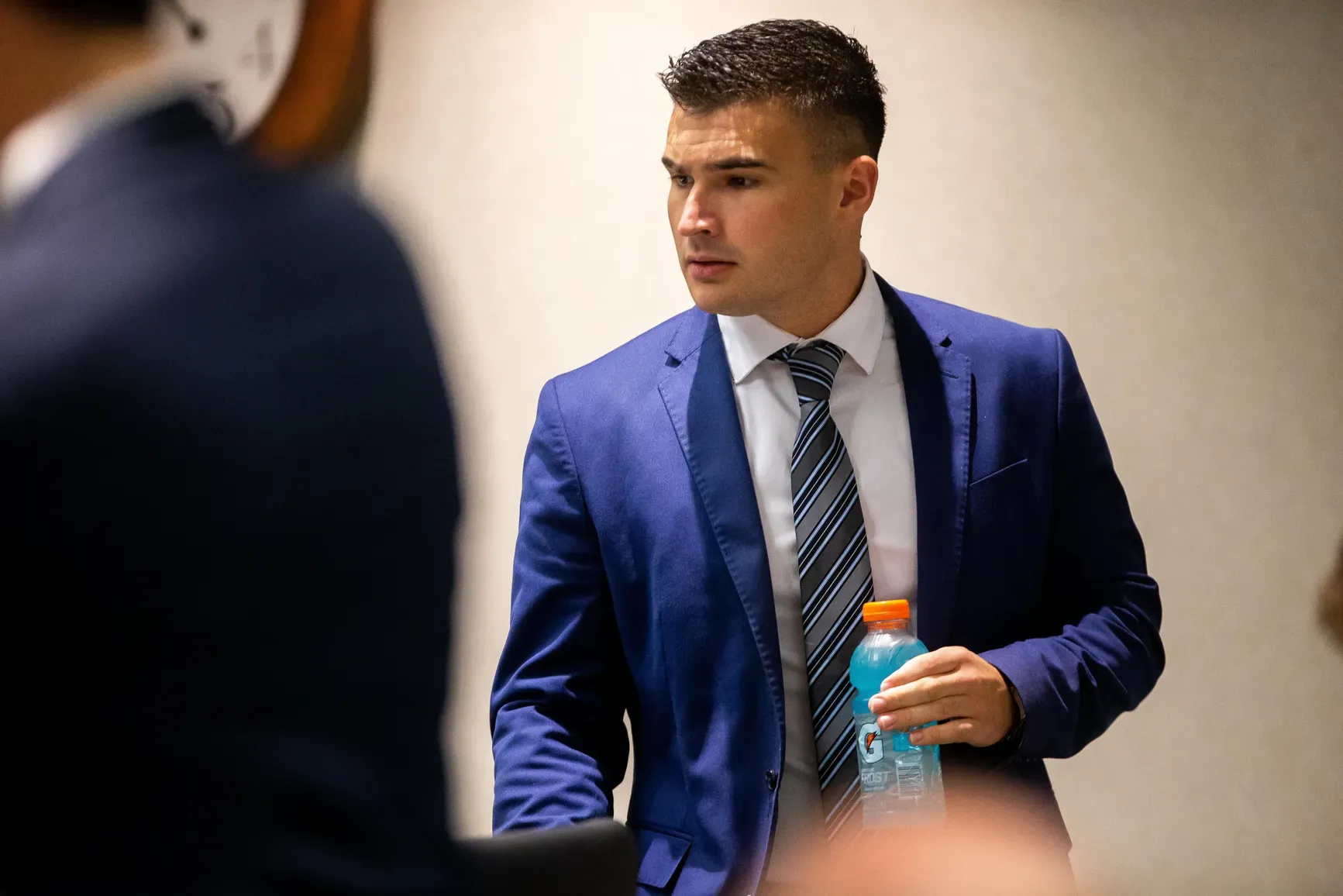
Those agreements are at issue because the former OI-led board approved them after going into separate closed sessions for each employee “to consider the dismissal, suspension, or disciplining of, or to hear complaints or charges brought against, or to consider a periodic personnel evaluation of, a public officer, employee, staff member, or individual agent.”
The problem: Zimmer claims that none of the legally allowed reasons was why the board went into closed session, which violates the state's Open Meetings Act.
“On Dec. 10, the commission was not considering the dismissal, suspension, or discipline of either Epperson or Wetmore, and there were no pending complaints or charges against either of them,” Zimmer's attorney, Sarah Riley-Howard wrote in an amended complaint filed March 7. “Furthermore, it was not the time for their periodic personnel evaluations, nor had such an evaluation been completed for any reason.”
After Zimmer filed suit on Dec. 16, the OI-led board brought the severance agreements back to its Dec. 19 agenda to "re-enact" the vote to approve them, then amended to resolve OMA issues, according to then-board chair Joe Moss — something Howard disputes because board deliberations occurred in closed session in the first meeting and open session in the second — without disclosing what happened in the first.
Read More: County to ask court to review Crockery Lake contract as board infighting continues
Read More: Lawsuit drops claim challenging Crockery Lake contract; severance claims to continue
“MCL 15.270(5) requires a public body to re-enact a disputed decision in conformity with the OMA,” Howard wrote. “The Commission only meaningfully deliberated the severance agreements in closed session on Dec. 10, rather than in an open session on Dec. 19, as required by the OMA.
“The Commission has not released the minutes of the closed session from Dec. 10. Thus, the Dec. 19 decision to approve the severance agreements without deliberations in open session or release of the closed session minutes was not made in conformity with the OMA,” she wrote.
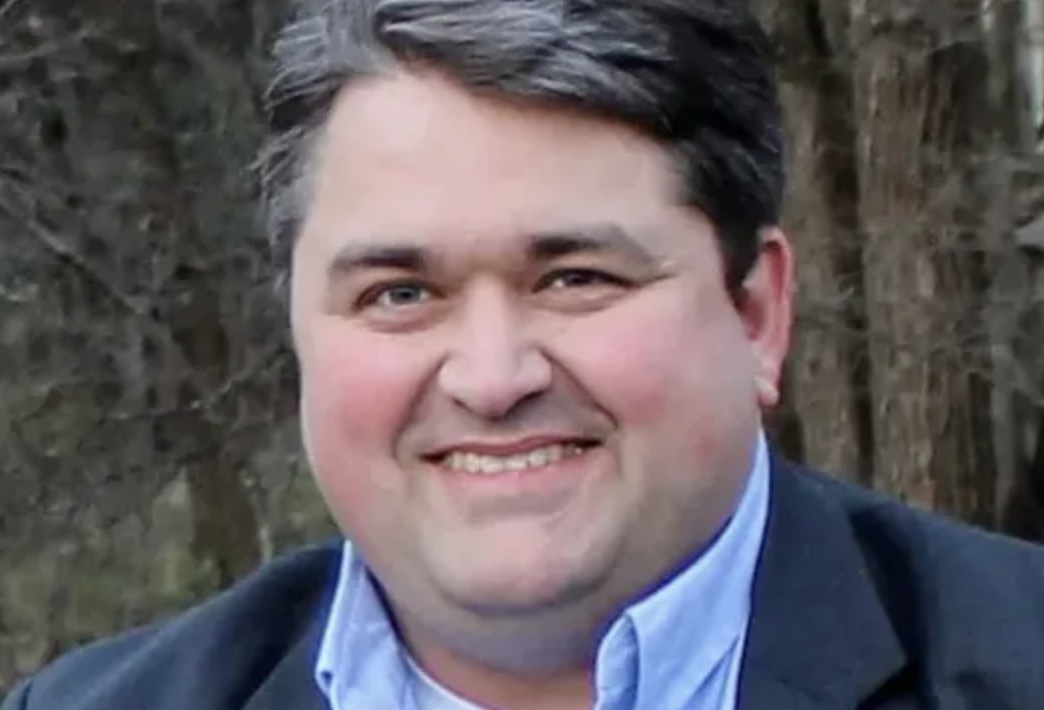
Settlement terms rejected
On March 17, Howard sent a proposed settlement offer to resolve the case.
Under the agreement:
- The county would admit that the first meeting’s discussion/decision on the severance agreements violated the OMA for the reasons alleged in the complaint, and the court declares this to have been a violation of the law.
- The parties agree that the court orders the county clerk to release to the public the closed session minutes from Dec. 10 and the meeting recording within 24 hours of the court’s order.
- The county admits that the second meeting’s re-enactment also violated OMA, and the court declares this to have been a violation of the law.
- Zimmer concedes that invalidating Wetmore’s severance agreement is no longer a viable remedy, and voluntarily withdraws the demand for the county to reclaim the funds.
- Zimmer is awarded $500 in statutory damages.
- The county pays Howard's law firm $19,500 in attorney fees.
"It is our view that this would finish this case now, and put it behind everyone, as well as serve the important interest of transparency to inform the public of what occurred during the first meeting’s closed session," Howard wrote in an email dated March 17 to the county's corporation counsel.
"The alternative is everyone spending quite a bit more in attorney fees when this likely goes to appeal, and dragging it out for more than a year — and probably ending up right where we are proposing now — except with a lot more than this in attorney fees,” she said.
The board opted not to go into closed session April 22 to discuss Howard's settlement proposal, meaning commissioners were individually notified of the terms. They then voted in open session to reject the offer.
Chair John Teeples, a moderate Republican, said April 28 that discussing the settlement proposal was "premature" because he had not yet had the opportunity to apprise the full board on the facts of the case.
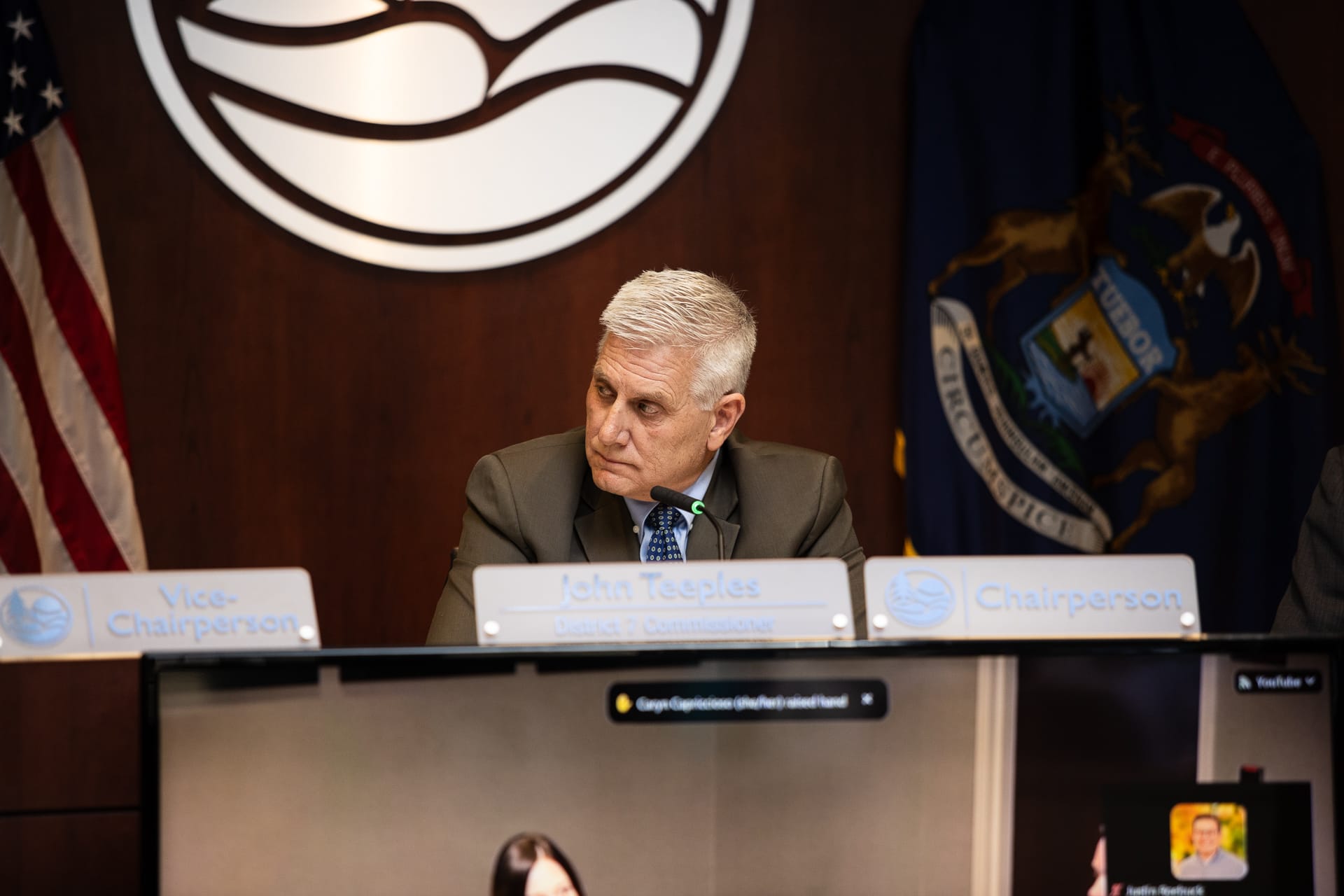
"We will likely be going into closed session at a future meeting, so that I can bring all the commissioners up to speed on the whole case," Teeples said. "I definitely intend to bring all the board members up to speed on what that case is all about. We weren't ready to do that yet.
"The commissioners don't all have understanding of the facts, and so that's the only reason we didn't want to go into closed session. But it's coming; believe me, it's on my agenda. We're getting there," Teeples said.
What's happening now
Because the settlement proposal was rejected, the case moved forward in the discovery process, where both sides gather and exchange information and evidence relevant to the case.
In April 24, Howard requested a copy of the Dec. 10 closed session minutes and the related audio recording. She also filed a subsequent subpoena for county Clerk Justin Roebuck, whose staff is responsible for curating and storing the sensitive records, to depose him and bring the records — a deposition "duces tecum" translates to "bring with you."
Howard informed county attorney Mike Bogren that she and her client were willing to agree to a protective order that would prohibit them from disclosing the contents of the closed session minutes until a court orders it.
Howard said reviewing the records are critical to the case because the county has maintained it went into closed session for a legally acceptable reason on Dec. 10 — which some commissioners have disputed.
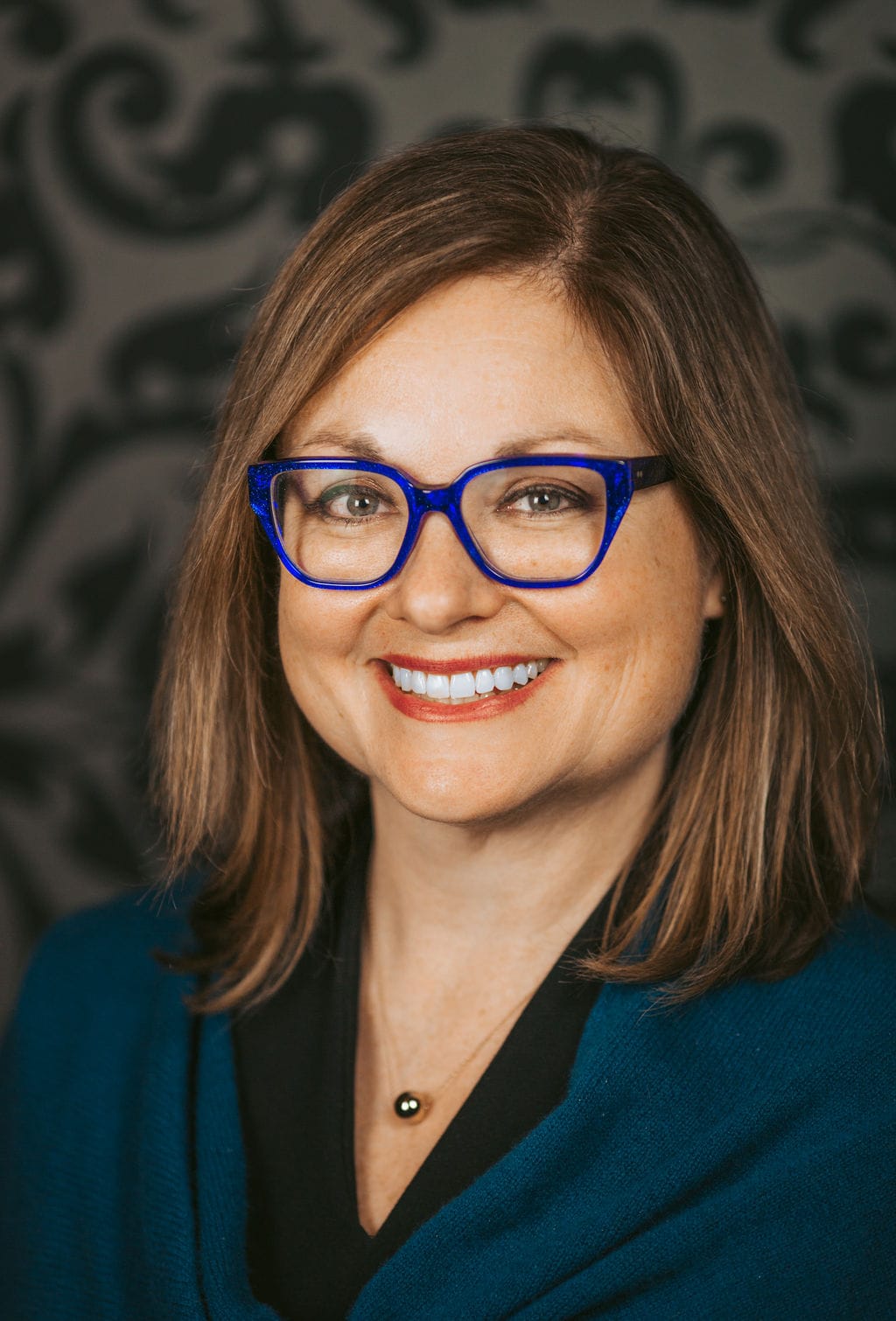
"Admissions by the commissioners and the known facts of the surrounding circumstances point to the opposite conclusion," Howard said. "The only way to ascertain the true purpose of the closed session is for the lawyers and the court to examine the minutes and recording(s) from closed session, and so it is therefore 'required' by this civil action," she wrote in an April 24 email to Bogren.
On May 5, Bogren filed a motion to "quash," or reject, claiming the subpoena to depose Roebuck lacks a legal basis and "seeks to coerce an illegal act."
"Plaintiff’s subpoena is based on nothing more than the existence of the lawsuit he filed. If the filing of a lawsuit were all it took to invade the closed session privilege, there would be no purpose to Freedom of Information Act requests, or indeed any point to obtain a judgment under the statute," Bogren wrote in the filing. "That OMA explicitly requires that the minutes of a closed session may be disclosed only upon entry of a judgment finding the challenged meeting improper."
In court on Friday, Bogren's colleague, James Lamb, said if the court allowed Roebuck to comply with the subpoena, it would "essentially violate the Open Meetings Act."
He said the proper remedy would be for Noto to perform an "in camera" review, a legal term referring to a private inspection of evidence by a judge, outside the presence of the involved parties and the public.
"Then, should there be a violation of the OMA, that is ... the time for how the closed session was closed," Lamb said.
Todd Stuart, who represents Wetmore separately in the lawsuit after the former interim administrator filed a motion in March to intervene, or to join the lawsuit.
Stuart said he and his client agreed with the county's position on quashing the subpoena, saying the spirit of the OMA statute was, in part, to protect public employees.
"The legislative branch intended [the statute] to offer some protection to public employees," Stuart said.
Howard, in her June 1 response brief and on Friday, urged Noto to deny the motion to quash, saying the protective order would be adequate to prevent her and her client from disclosing details to the public or media.
She said this would allow the lawsuit to proceed where she would be allowed to argue the facts accurately.
"I am not requesting at this point that the minutes or the recording be made public. I'm only requesting that I, as an officer of the court, be allowed to have them so that I can make arguments to the court," Howard said in court Friday.
"It would be absurd, essentially, to say that simply by reciting the language of the OMA, they can get around the best evidence of whether or not this meeting, the closed session, concerned subjects that they said it was going to concern," she said.
Howard pointed to public statements of some commissioners who were in the December closed session that indicated no disciplinary action or charges were disccussed.
"We had public statements by members of the defendant county commission refusing the idea that they were in sessions with the reason that they stated they were in this case, seems particularly appropriate under the statute, under the plain language of the statute, to permit me, as the advocate for the plaintiff, to weigh in on whether or not there's evidence of that crime," Howard said.
Support Our Work
Ottawa News Network is a nonprofit news service dedicated to providing the residents of Ottawa County with trustworthy, community-driven news. ONN treats journalism as a public good — something that enriches lives and empowers Ottawa County’s 300,000-plus residents to stay engaged, make informed decisions, and strengthen local democracy. Please consider giving today.
Ultimately, Noto was not persuaded to allow Howard and Zimmer access to the information.
"[The minutes are] not available to the public, the statute tells us, and we're talking about disclosure in this case, when, and under what circumstances they shall be disclosed.
"The Court of Appeals interpreted this language and said that the only viable way to interpret the pertinent statutory language is the minutes of closed sessions. Sessions are exempt from disclosure to the public under the OMA unless a civil suit is filed under the OMA that results in a judgment requiring disclosure.
"In other words, it's not sufficient for a party to file a lawsuit and then get access to these minutes. The court is going to follow the interpretation that the Court of Appeals has rendered on this issue," Noto said.
— Sarah Leach is the executive editor of the Ottawa News Network. Contact her at sleach@ottawanewsnetwork.org. Follow her on Twitter @ONNLeach.

